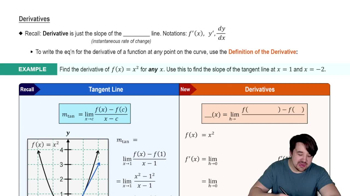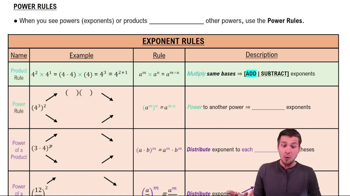The following limits represent f'(a) for some function f and some real number a.
Find a possible function f and number a.
lim x🠂0 e^x-1 / x
 Verified step by step guidance
Verified step by step guidance Verified video answer for a similar problem:
Verified video answer for a similar problem:



 3:59m
3:59mMaster Derivatives of Linear Functions with a bite sized video explanation from Patrick
Start learning